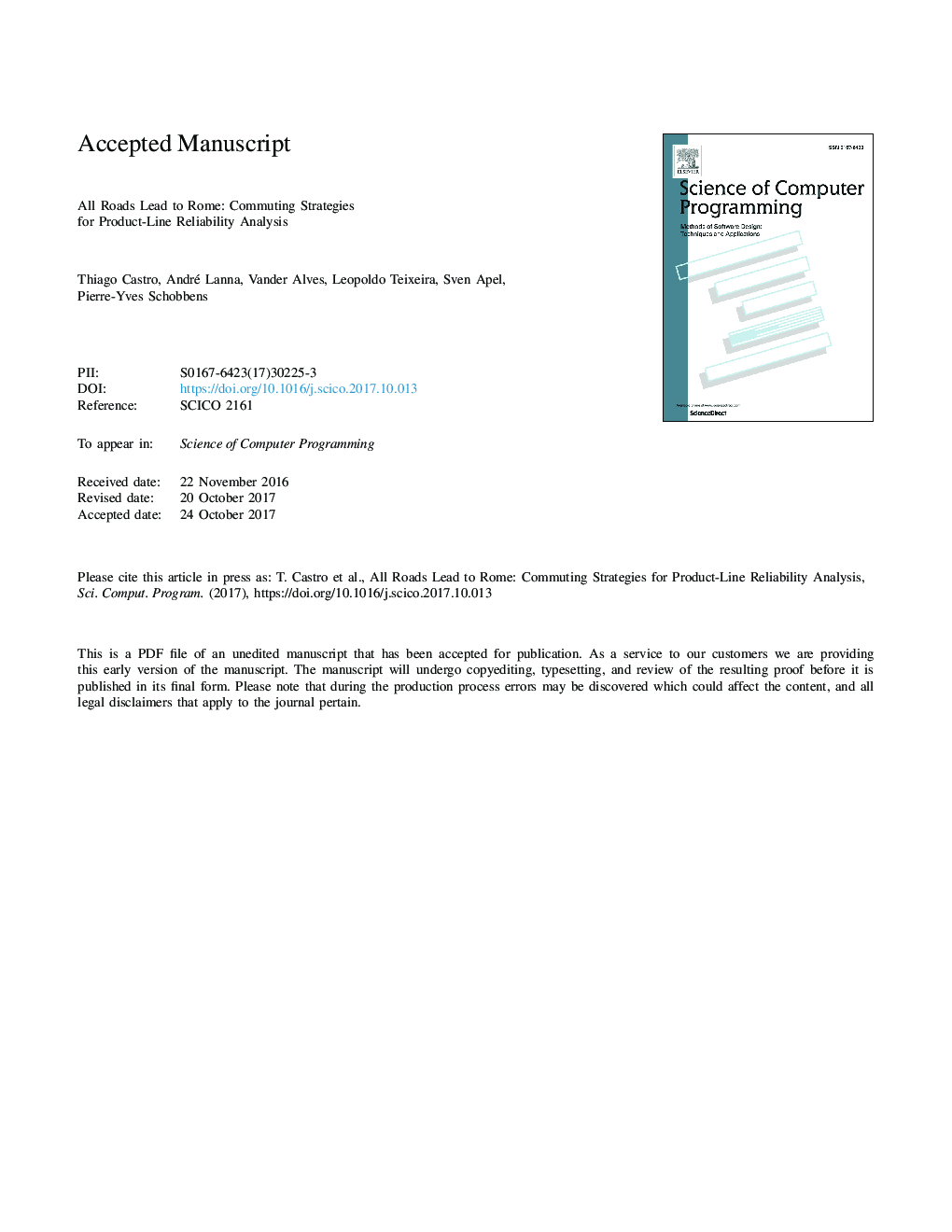| Article ID | Journal | Published Year | Pages | File Type |
|---|---|---|---|---|
| 6875303 | Science of Computer Programming | 2018 | 71 Pages |
Abstract
Software product line engineering is a means to systematically manage variability and commonality in software systems, enabling the automated synthesis of related programs (products) from a set of reusable assets. However, the number of products in a software product line may grow exponentially with the number of features, so it is practically infeasible to quality-check each of these products in isolation. There is a number of variability-aware approaches to product-line analysis that adapt single-product analysis techniques to cope with variability in an efficient way. Such approaches can be classified along three analysis dimensions (product-based, family-based, and feature-based), but, particularly in the context of reliability analysis, there is no theory comprising both (a) a formal specification of the three dimensions and resulting analysis strategies and (b) proof that such analyses are equivalent to one another. The lack of such a theory hinders formal reasoning on the relationship between the analysis dimensions and derived analysis techniques. We formalize seven approaches to reliability analysis of product lines, including the first instance of a feature-family-product-based analysis in the literature. We prove the formalized analysis strategies to be sound with respect to the probabilistic approach to reliability analysis of a single product. Furthermore, we present a commuting diagram of intermediate analysis steps, which relates different strategies and enables the reuse of soundness proofs between them.
Related Topics
Physical Sciences and Engineering
Computer Science
Computational Theory and Mathematics
Authors
Thiago Castro, André Lanna, Vander Alves, Leopoldo Teixeira, Sven Apel, Pierre-Yves Schobbens,
